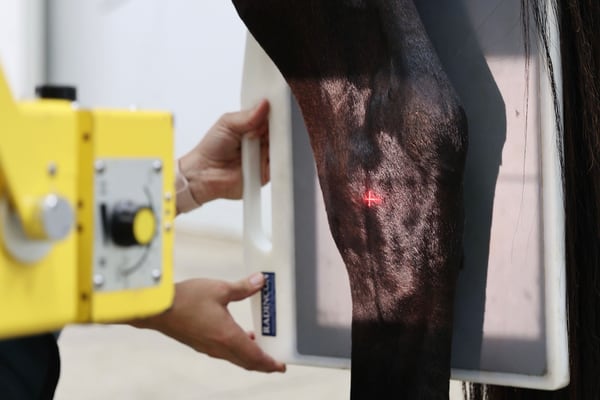With winter now here, it is time to really think about how to look after your horse in the colder weather. Horses and ponies, particularly older ones, can lose weight easily over winter. The nutrition in the grass has fallen, and the paddocks are becoming more bare. Additionally, it takes more energy to keep warm as the temperatures drop. Here are some tips to keep your horse happy and healthy.
Keep a constant eye on their appearance and overall condition, including weight, coat, eyes, mane, tail and hooves. If they are losing weight, you will have to supplement their diet and increase their ration of roughage, like hay and chaff, and even increase or introduce some concentrate feeds. If you are worried about the horse becoming “hot” on additional feeds, try some of the feeds like coprice (based on rice), copra (based on coconut, must be wet with equal quantity of water), gumnuts, or manufactured “cool” feeds designed specifically for putting on weight. You may have to experiment to find the feed which suits your horse. Factors such as individual taste, breed, age, climate, size, and the amount and type of work done by a horse will influence its feed requirements. Especially remember you must feed to the amount of work the horse is doing. A lightly used horse requires around 95% roughage to 5% concentrate (grains) while a horse in extremely heavy work (eg race horse) needs about 50% roughage to 50% concentrate (grains).
Horses will generally need dry matter equivalent to about 1.5% to 2.5% of their body weight per day. If supplementary feed is required, feed the horse high fibre roughage food at least twice a day. Note that horses have only a small stomach so smaller amounts, fed more often, are preferable to one large amount. Horses are far more sensitive to their feed than cows or sheep. Any changes in diet should be made gradually, over eight to ten days. This minimizes the risk of colic, especially if introducing grain, changing feed type or quantities fed. Do not feed a horse mouldy feed. As horses are unable to digest low quality feeds efficiently, they should be provided with good quality feed at all times.
Beware of poisonous plants, in particular those palatable to horses, eg. crofton weed, green cestrum, groundsel, bracken fern, creeping indigo, and also poisonous plants often found in gardens, including avocado, oleander and black bean. Many of these weed plants grow more rapidly than pasture grasses, so inspect paddocks for their presence and remove them.
Rugging horses during winter helps to keep them warm and to maintain their condition. Rugs must be checked twice a day. Make sure leg straps are not too tight, digging into the horse’s legs, but not too loose. You should be able to fit your hand sideways between the strap and the horse. Do not allow straps to hang down near hocks. Similarly, make sure belly straps are comfortable, without hanging down too low. Many a horse has got caught up in his rug, when his back legs have been able to slip out of loose straps when rolling. Also make sure the horse does not get too hot in his rug. During sunny and mild winter days, the horse may not need rugging or may just need a lighter day rug, with a heavier rug put on at night time.
If you have not had your horse’s teeth checked for a year, organise an appointment with your Veterinarian. It is a good opportunity for the vet to give them their annual tetanus/ strangles injection if this has not been done. Keep up the worming program – at least every 8 weeks for horses in paddocks, and keep their paddocks clear of manure to stop worm reinfestation.

